- Home
- slideshows
- miscellaneous
- 10 quotes from ancient thinkers that show they figured life out 2,000 years ago
10 quotes from ancient thinkers that show they figured life out 2,000 years ago
"No man ever steps in the same river twice, for it's not the same river and he's not the same man." — Heraclitus, lived circa 500 BCE in Ephesus, modern-day Turkey.

The sage "is ready to use all situations and doesn't waste anything. This is called embodying the light." — Lao Tzu, alive circa 600 BCE in China.
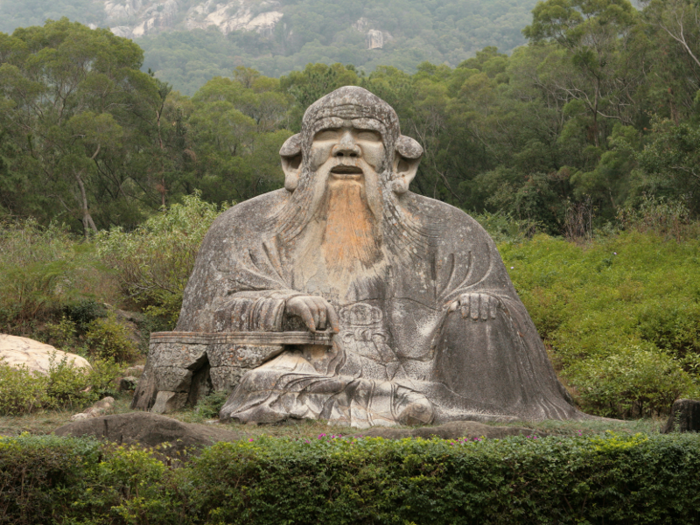
Lao Tzu established the tenets of Taoism 2,500 years ago in China. Scholars say he's semi-legendary, since Lao Tzu just means "Old Man" and nobody knows his real identity.
More importantly, he left us the inscrutably playful text, the "Tao Te Ching." It's full of zingers, such as the above observation, which basically says that every situation you find yourself in, no matter how bad it seems, is fundamentally workable.
"Most powerful is he who has himself in his own power." — Seneca, died 65 CE in Rome.
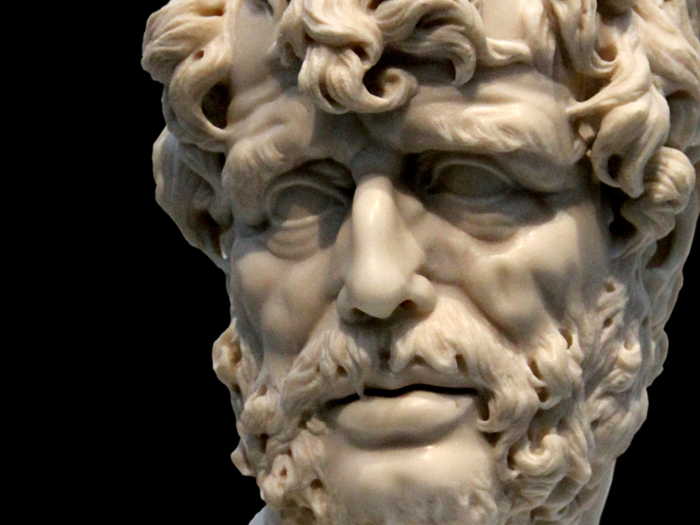
The Roman Seneca was a Stoic philosopher and an advisor of the emperor Nero.
He's beloved by contemporary philosophy nerds like the investor Nassim Taleb and marketing whiz Ryan Holiday.
Seneca anticipated what psychologists today call "locus of control." People with an external locus of control think that the events in their life stem from factors outside themselves, like fate or a deity. People with an internal locus of control think they are in charge of the events in their lives, and are more likely to turn the lemons of life's tragedies into the lemonade of wisdom — which is precisely what Seneca exhorted the reader to do.
"Suffering exists." — Siddhartha Gautama, lived circa 500 BCE in the plain of the Ganges, modern India.
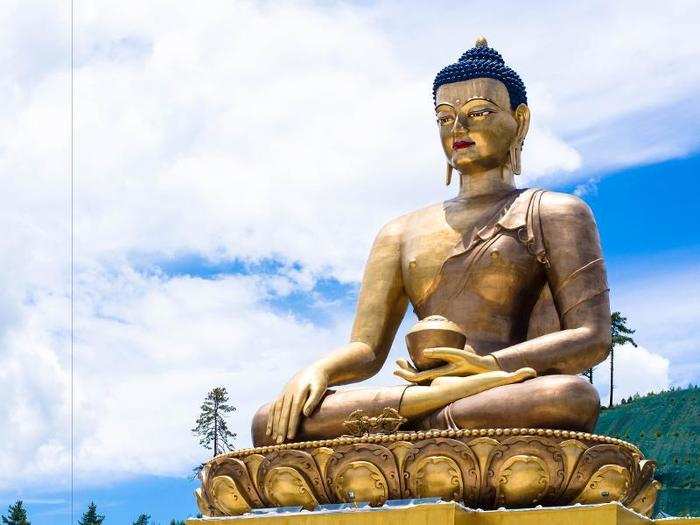
Often mistranslated as the much less hopeful life is suffering, Siddartha Gautama's observation that suffering simply exists is the bedrock of the religion built around his teachings: Buddhism.
When you recognize that suffering exists, it's a lot easier to face it.
"The unexamined life is not worth living." — Socrates, lived in Athens circa 450 BCE.
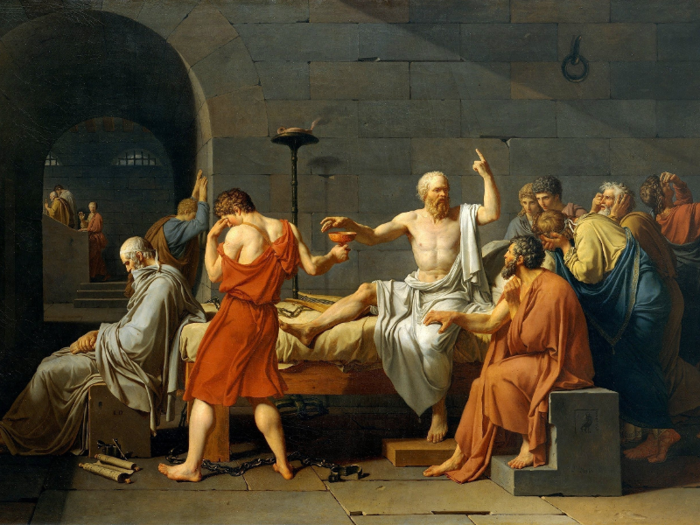
Socrates embodied the fundamental spirit of Western thought: that the individual has the responsibility of being the author of their own life.
To do that, he said, you must examine everything, including yourself. Ever since he was put to death by the Athenian court for impiety and corrupting the city's youth, he has been an enigma. Despite writing nothing, he remains one of the most important Western philosophers.
"To rank the effort above the prize may be called love." — Confucius, alive in China circa 500 BCE.
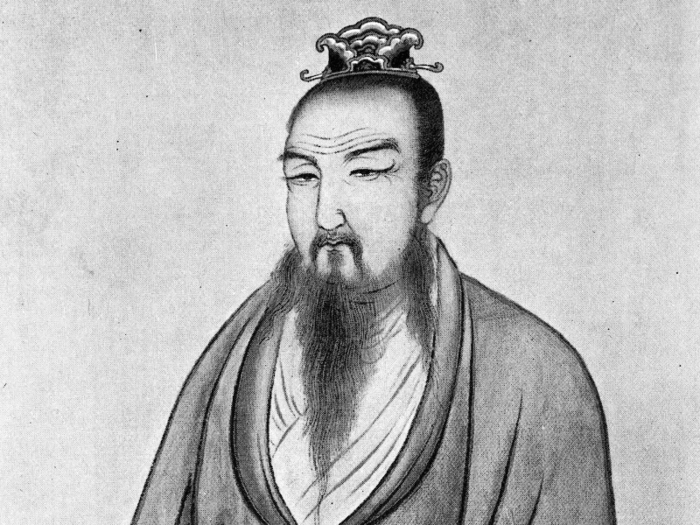
Confucius is one of the most influential figures in Chinese history — at least as much as Socrates is in the West, according to philosophers.
The country — and the entire East Asian region's — emphasis on familial relationships and duty to the state can be traced back to this sage.
He emphasized what we today may call grit: finding the value in trying to achieve, and not in attaining actual achievements.
"The life of money-making is one undertaken under compulsion, and wealth is evidently not the good we are seeking; for it is merely useful and for the sake of something else." — Aristotle, alive in ancient Greece circa 300 BCE.
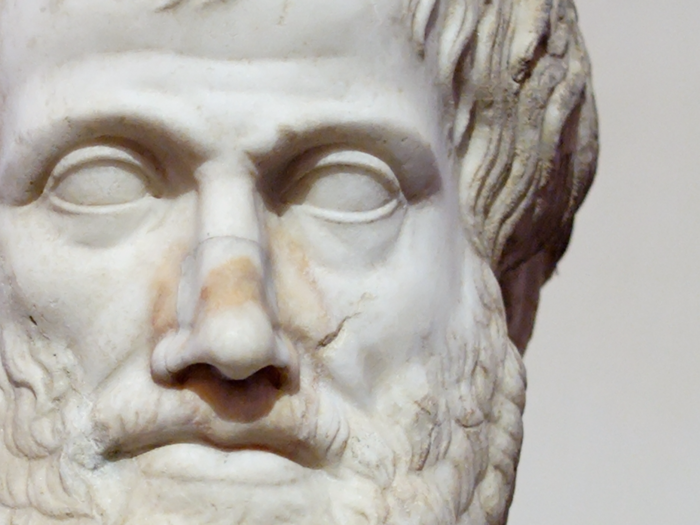
Not only was Aristotle one of the first people to lay out ideas about the natural world that we might now call scientific, but he gave a critique of living a capitalistic life 2,000 years before Karl Marx was born.
Living for money wasn't good, Aristotle observed, since money was only useful when leveraged as a tool to gain something else — like security or status.
"When you are inspired by some great purpose, some extraordinary project, all your thoughts break their bonds." — Patanjali, alive in India circa 100 BCE.
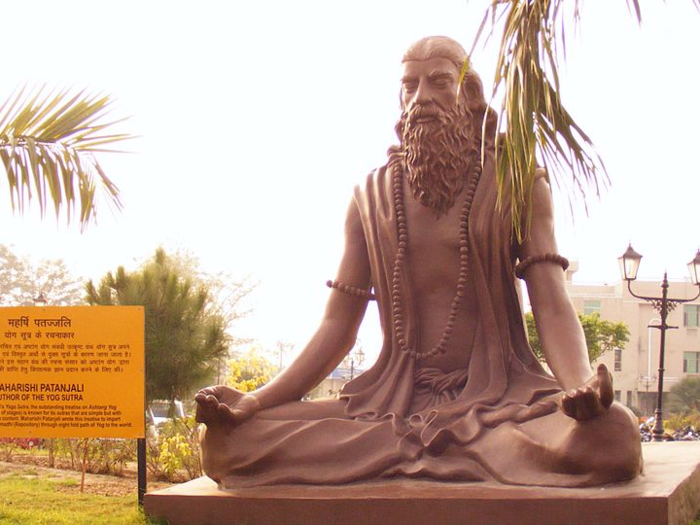
Patanjali put together the yoga sutras, the philosophy underlying the sun salutations you might start the day with.
The above quote continues:
"Your mind transcends limitations, your consciousness expands in every direction, and you find yourself in a new, great, and wonderful world. Dormant forces, faculties, and talents become alive, and your discover yourself to be a greater person by far than you ever dreamed yourself to be."
"Although you may spend your life killing, you will not exhaust all your foes. But if you quell your own anger, your real enemy will be slain." — Nagarjuna, India, alive circa 200 CE.

Nagarjuna was one of the most important Buddhist philosophers since Siddartha Gautama. The above quote speaks to his emphasis on being intimate with one's own interior world.
He was a rigorous logician who argued that any statement you make can be in some way falsified — so if you're looking for truth, it's probably not going to come in words.
Rather, it will be through direct experience. Like — as you may expect from a Buddhist saint — through meditation.
"The wealth required by nature is limited and is easy to procure; but the wealth required by vain ideals extends to infinity." — Epicurus, alive in ancient Greece circa 300 BCE.
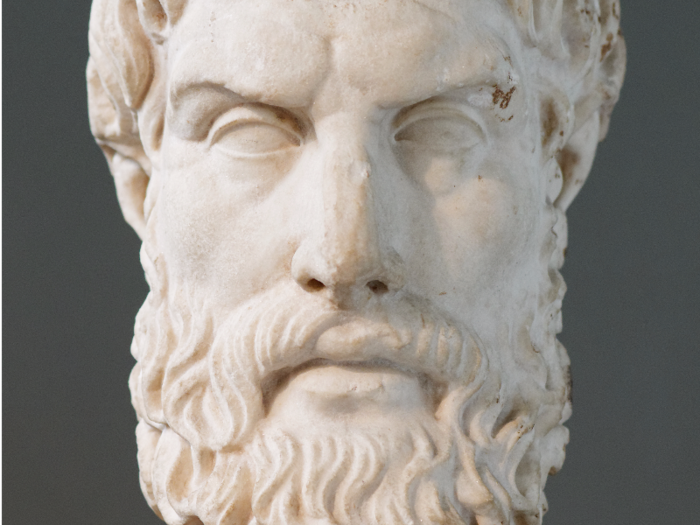
In contemporary use, the name of the Ancient Greek philosopher Epicurus tends to refer to the pleasure-obsessed: An Epicurean night out almost certainly entails a hangover.
But Epicurus the philosopher was much more well-measured. As the above quote suggests, he thought living well was a matter of having command of one's own desires, so that you don't spend your time on earth chasing after things you'll never be able to attain.
Popular Right Now
Popular Keywords
Advertisement